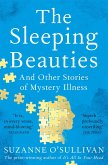The extraordinary story of a child bride who took on the patriarchy and emerged one of India's pioneering women doctors.
From overcoming stupendous trials to inscribing her name in the annals of women's liberation, Rukhmabai's journey is marked by a quiet, unyielding strength. Denied formal education and wedded off at eleven years of age to a nineteen-year-old wastrel named Dadaji Bhikaji, Rukhmabai refused to live with him and was dragged into a vexatious legal suit for the 'restitution of conjugal rights'. The suit set off a huge social and political debate of far-reaching importance. Coverage of her historic defiance in both British and Indian media established her as a salient figure of global feminism and, along with the backing of notable reformers, soon paved the way for her move to the United Kingdom to study medicine.
Studying at the London School of Medicine for Women and qualifying to be a doctor in 1894, she returned to India a celebrity but chose an unglamorous life of service through medical practice. She spent the next many years, until her retirement in 1929, leading hospitals in Surat and Rajkot through two pandemics, performing daring surgeries, awakening women across classes and inspiring them to openly seek medical treatment.
An outcome of research spanning decades, Sudhir Chandra's intelligent, empathetic biography shines brilliant new light on this extraordinary but little-known life of a rebel-doctor who dared to challenge the norms of her time and left behind a formidable legacy. The radical view she proposed of woman's freedom is yet to be fully realized.
From overcoming stupendous trials to inscribing her name in the annals of women's liberation, Rukhmabai's journey is marked by a quiet, unyielding strength. Denied formal education and wedded off at eleven years of age to a nineteen-year-old wastrel named Dadaji Bhikaji, Rukhmabai refused to live with him and was dragged into a vexatious legal suit for the 'restitution of conjugal rights'. The suit set off a huge social and political debate of far-reaching importance. Coverage of her historic defiance in both British and Indian media established her as a salient figure of global feminism and, along with the backing of notable reformers, soon paved the way for her move to the United Kingdom to study medicine.
Studying at the London School of Medicine for Women and qualifying to be a doctor in 1894, she returned to India a celebrity but chose an unglamorous life of service through medical practice. She spent the next many years, until her retirement in 1929, leading hospitals in Surat and Rajkot through two pandemics, performing daring surgeries, awakening women across classes and inspiring them to openly seek medical treatment.
An outcome of research spanning decades, Sudhir Chandra's intelligent, empathetic biography shines brilliant new light on this extraordinary but little-known life of a rebel-doctor who dared to challenge the norms of her time and left behind a formidable legacy. The radical view she proposed of woman's freedom is yet to be fully realized.









